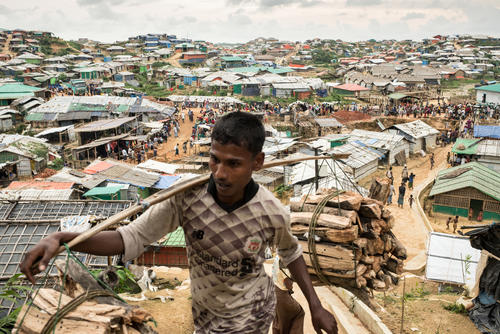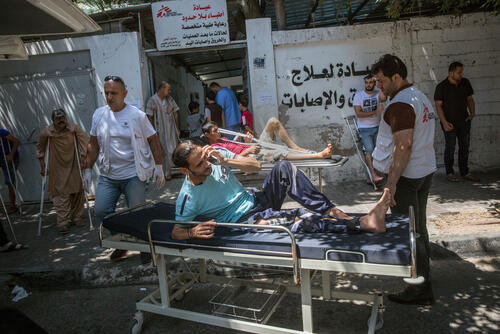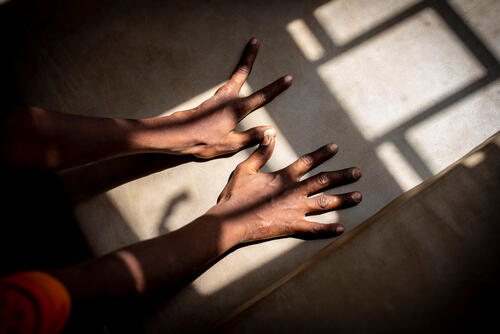More than a year after their mass exodus from Myanmar, the future looks more uncertain than ever for the Rohingya. Following a campaign of violence by the Myanmar military in August 2017 – ostensibly in response to attacks by the Arakan Rohingya Salvation Army – Rohingya refugees have continued to cross the border into Bangladesh. Over 908,000 had fled there by the end of 2018.
While the scale and speed of the exodus were unprecedented, for those familiar with Rohingya history it would not have come as a surprise. After all, their persecution stretches back decades. A marginalised ethnic minority, they have long been subject to appalling discrimination and segregation within Myanmar. In 1982, a citizenship law rendered them effectively stateless, and they face many other egregious restrictions, for example on marriage, family planning, education and freedom of movement.
Almost 130,000 Rohingya and other Muslims remain in de facto detention camps in central Rakhine state, unable to access basic services or earn a living, while hundreds of thousands more in the north are almost completely cut off from international humanitarian aid.
Since 1978, time and again discrimination and targeted violence have caused them to flee in their thousands into neighbouring countries or embark on dangerous boat journeys across the sea to Malaysia. Today the Rohingya are a stateless people scattered across Asia and beyond, with very few allies or options.
MSF has been working with the Rohingya for decades – in Myanmar since 1994, in Bangladesh on and off since 1985, and in Malaysia starting in 2004.
In August 2017, when the targeted attacks by the Myanmar military forced the biggest-ever number of Rohingya into neighbouring Bangladesh, we were able to swiftly increase our activities in Cox’s Bazar district and provide emergency care to patients with violence-related injuries, including rape and gunshot wounds, as well as severe trauma. We carried out massive vaccination campaigns and by December 2018 had conducted around one million consultations for medical conditions, such as diarrhoeal diseases, skin diseases and respiratory infections, that were directly related to the lack of healthcare available to the Rohingya in Myanmar or their abysmal living conditions in Bangladesh.
The Rohingya continue to be confined to overcrowded, unsanitary camps, unable to work, receive a formal education or access basic services. They are almost entirely dependent on humanitarian aid and the generosity of their Bangladeshi hosts.
Their experiences of unspeakable violence in Rakhine and anxiety about what the future holds exacerbate their health problems, yet the availability of specialised services, such as mental health support or free, high-quality secondary healthcare, is extremely limited. News of imminent repatriations in November, which were shelved after no refugees were willing to return, highlighted how precarious the Rohingya’s situation remains.
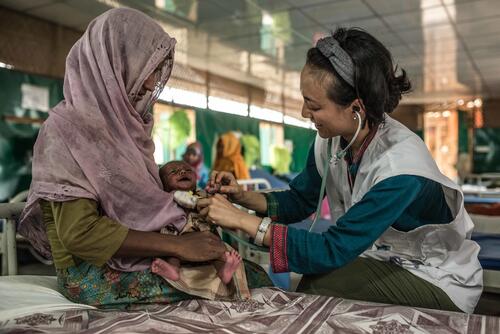
By the end of 2018, some aid organisations had started to close or scale down their operations in Bangladesh as the situation was no longer considered an emergency.
The response has been largely short-term in scope, treating the symptoms of Rohingya disenfranchisement without sufficiently addressing the causes of it.
Donor countries have lost interest and at the time of writing, funding for the humanitarian response remains grossly inadequate, with key questions yet to be answered: what will happen to the over one million Rohingya in Bangladesh, living in dangerously cramped and squalid camps, with no prospects of integration or resettlement? Denied refugee status in Bangladesh, will they ever be able to return home? If they do, to what will they be returning? Will the Rohingya be forced back to Myanmar, as they were in 1978-79 and again in 1993-97?
These questions hang over Rohingya refugees in Malaysia too. As in Bangladesh, our teams there witness daily the consequences of the Rohingya’s marginalisation; deprived of legal status, they are highly susceptible to extortion, abuse and detention.
Their plight in these countries exposes a global collective failure to protect an already vulnerable people from further violations. As such, it requires not only regional but international leadership and solutions.
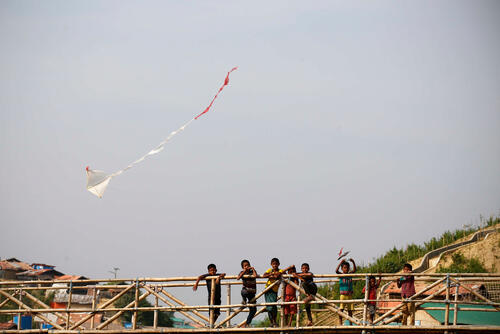
Of course, the root of the problem lies in Myanmar, where 550,000-600,000 Rohingya still live. Very little is known about the health and humanitarian status of those in northern Rakhine. Our repeated requests for access to this region continue to be ignored or denied by the authorities.
Despite international outrage at the violence committed by Myanmar security forces against the Rohingya in 2017, external pressure has produced little to no change on the ground. Discrimination and segregation persist, and small numbers of Rohingya continued to flee to Bangladesh in 2018.
For more than two decades, we have witnessed a steadily deteriorating human rights and humanitarian situation in Rakhine. The continued restrictions on access to the north, and the de facto detention of Rohingya in camps in the central region pose serious operational and ethical dilemmas for MSF. Bearing witness, or témoignage, remains a central reason for our continued presence, even as our ability to respond to the health needs has reduced considerably.
As the world’s gaze shifts from the Rohingya to the next humanitarian emergency, the challenge for 2019 and beyond will be to keep the plight of one of the most vulnerable groups of people in the world visible.
We will continue to provide much-needed medical and humanitarian services and speak out about the scale of the Rohingya’s needs in Myanmar, Bangladesh and Malaysia, but the international community’s moral outrage must be translated into meaningful actions to end discrimination and denial of citizenship, a pre-condition for the voluntary, safe and dignified return of Rohingya to Myanmar.
Governments need to move beyond subsistence support in Bangladesh and redouble their diplomatic efforts so that the Rohingya have a genuine chance of a better life.



